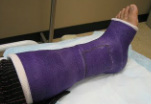
Everyone knows what recovery means, right? It means getting better. Whether it is from a physical illness or injury or from addiction or mental illness, it’s about healing.
Recovery from Addiction
What does it take to get better? In the case of a physical illness or injury, the first thing that has to happen is the cause of the injury has to be stopped first. Then the healing can begin. The same is true of addiction; we have to stop using our drug(s) first.
But that’s not the end of it. Active addiction causes problems for us and the people around us: family, friends, employers, etc. It affects us socially. It affects us emotionally. It affects us financially, physically, spiritually . . . and in work, how we have fun and many other ways. Do these things automatically get better because we stop using? No. It takes time for us to recover the things that we have lost due to our addiction. How long does this take? Well, it depends. It depends on how long we’ve been using, things we did while using and what we had in the way of resources and skills in the first place, before we started using.
So, what I’m saying is that recovery is a process that STARTS with abstinence. Here is the $50 definition:
Recovery =
abstinence + repairing the damage done by addiction + maintaining the repairs
Recovery from Mental Illness
Recovery from Mental Illness is similar. The first thing that needs to happen is to stop or at least diminish the symptoms of the problem. This is not as simple as it is for addiction. It often takes trial and error in a number of treatment options to reduce or eliminate the symptoms that are causing us grief. In the past, people did not believe people with a mental illness did or could get better. But we can. Once the symptoms are under control, we then begin the healing process in the same way, repairing our relationships with family, friends, work, learning how to have fun and develop a healthy spirituality. Recovery takes as long as it takes. It is a process, not an event.
Recovery =
symptom management + repairing damage + maintaining the repairs
Recovery from brain diseases is not like healing from a broken leg. You can’t just put a cast on it for awhile, get some physical therapy and a few months later it’s all better. Recovery requires vigilance and active participation in order to keep the symptoms from returning. Brain diseases are chronic illnesses. Even people who have been abstinent for decades can relapse and return to active addiction. People whose depression has been under control for years can have a relapse and have to manage the feeling of hopelessness and despair all over again. Recovery is a lifelong process. Maybe someday, when we understand how the brain works better, we can talk about someone being “recovered,” but not yet.
To find out more or to schedule an appointment, contact me at (360) 949-2524 or Jeanne@ChoicesCounseling.org.
Recovery from Addiction
What does it take to get better? In the case of a physical illness or injury, the first thing that has to happen is the cause of the injury has to be stopped first. Then the healing can begin. The same is true of addiction; we have to stop using our drug(s) first.
But that’s not the end of it. Active addiction causes problems for us and the people around us: family, friends, employers, etc. It affects us socially. It affects us emotionally. It affects us financially, physically, spiritually . . . and in work, how we have fun and many other ways. Do these things automatically get better because we stop using? No. It takes time for us to recover the things that we have lost due to our addiction. How long does this take? Well, it depends. It depends on how long we’ve been using, things we did while using and what we had in the way of resources and skills in the first place, before we started using.
So, what I’m saying is that recovery is a process that STARTS with abstinence. Here is the $50 definition:
Recovery =
abstinence + repairing the damage done by addiction + maintaining the repairs
Recovery from Mental Illness
Recovery from Mental Illness is similar. The first thing that needs to happen is to stop or at least diminish the symptoms of the problem. This is not as simple as it is for addiction. It often takes trial and error in a number of treatment options to reduce or eliminate the symptoms that are causing us grief. In the past, people did not believe people with a mental illness did or could get better. But we can. Once the symptoms are under control, we then begin the healing process in the same way, repairing our relationships with family, friends, work, learning how to have fun and develop a healthy spirituality. Recovery takes as long as it takes. It is a process, not an event.
Recovery =
symptom management + repairing damage + maintaining the repairs
Recovery from brain diseases is not like healing from a broken leg. You can’t just put a cast on it for awhile, get some physical therapy and a few months later it’s all better. Recovery requires vigilance and active participation in order to keep the symptoms from returning. Brain diseases are chronic illnesses. Even people who have been abstinent for decades can relapse and return to active addiction. People whose depression has been under control for years can have a relapse and have to manage the feeling of hopelessness and despair all over again. Recovery is a lifelong process. Maybe someday, when we understand how the brain works better, we can talk about someone being “recovered,” but not yet.
To find out more or to schedule an appointment, contact me at (360) 949-2524 or Jeanne@ChoicesCounseling.org.